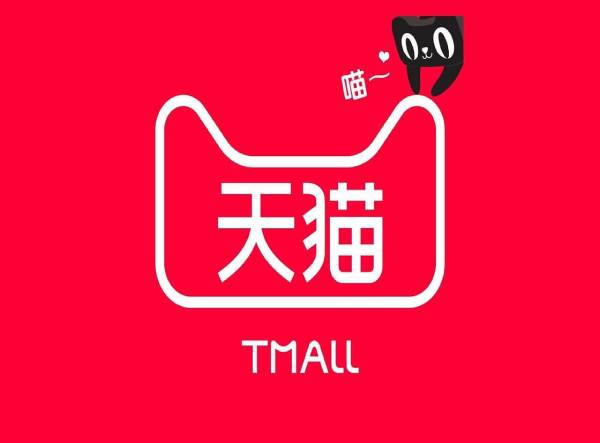In the fast-paced global business landscape, there are few markets that can leverage the influence and potential of China’s e-commerce marketplace. As 2023 approaches, a few dominant platforms have become the driving force behind China’s compelling online shopping phenomenon. This comprehensive guide is your compass in this dynamic environment, providing brands with the knowledge they need to make informed decisions about the best platform for their products and services.

Importance of Chinese E-commerce Marketplaces
China’s economic might reverberates across the globe, and its e-commerce ecosystem is at the forefront of this phenomenon. The e-commerce marketplace gives brands unprecedented access to the vast Chinese consumer base, fueling online growth and driving market expansion. These platforms have become indispensable for businesses seeking to carve out niches, expand their online presence and increase revenue streams.
The Top Chinese E-commerce Marketplaces
Alibaba (阿里巴巴, 1688)
Alibaba Group’s 1688 is a B2B platform that offers a comprehensive marketplace for wholesalers and manufacturers. With an extensive network of suppliers and buyers, 1688 facilitates bulk transactions and serves as a hub for sourcing a wide range of products.

Pros and Cons:
- Pros:Unparalleled reach, covering a myriad of industries and products.
- Cons:The wholesale field is highly competitive and often requires familiarity with Chinese business practices.
Suitable Brands and Products:
Manufacturers, distributors, and brands seeking to source products in bulk will find 1688 to be a prime destination.
TMall (天猫)
TMall, owned by Alibaba, is one of China’s premier B2C marketplaces. Renowned for its focus on authenticity and quality, provides a platform for established brands and emerging businesses to engage directly with Chinese consumers.

Pros and Cons:
- Pros:Prestigious exposure, tapping into Alibaba’s vast user base, and robust logistics.
- Cons: Strict brand access requirements, high setup costs.
Suitable Brands and Products:
Brands seeking to connect with discerning Chinese consumers looking for genuine and high-quality products.
JD (京东)
JD.com is a staunch supporter of e-commerce marketplace in China and is highly respected for its reliable delivery services and comprehensive product selection. JD.com caters to different industries and provides a user-friendly platform for buyers and sellers.

Pros and Cons:
- Pros:Excellent delivery network, quality assurance, and a wide array of products.
- Cons:High associated costs, intense competition due to a vast seller base.
Suitable Brands and Products:
Brands emphasizing product quality and looking for a reliable and mature sales platform.
Pinduoduo (拼多多)
Pinduoduo has harnessed the power of social commerce to gain a foothold in China’s e-commerce market. The platform engages users through group-buying deals, fostering a sense of community and sharing savings.

Pros and Cons:
- Pros: Unique social shopping experience, affordability, and opportunities for smaller brands to gain visibility.
- Cons: Smaller profit margins due to discounted pricing and challenges in maintaining product quality.
Suitable Brands and Products:
Brands offering budget-friendly products or those looking to leverage the group-buying trend for exposure.
Vipshop (唯品会)
Vipshop is known for its pop-up sales and discount branded products. By appealing to the bargain-hunting audience, Vipshop provides a platform for both brands and consumers seeking great deals.

Pros and Cons:
- Pros: Attracting value-conscious shoppers, and build a customer base.
- Cons: Limited control over inventory and focus on discount-driven purchasing.
Suitable Brands and Products:
Brands aiming to clear excess inventory or offer time-limited deals on branded items.
Suning (苏宁)
Suning has positioned itself as a platform that seamlessly blends online and offline shopping experiences. With an extensive network of physical stores, Suning caters to consumers who like the convenience of online shopping while also valuing the option of going to physical stores.

Pros and Cons:
- Pros: Omni-channel presence, diverse product range, and a blend of online and offline shopping experiences.
- Cons: Potential challenges in maintaining brand awareness due to its wide range of products and increased competition.
Suitable Brands and Products:
Brands looking to establish a comprehensive presence both online and offline, targeting consumers who value convenience.
Douyin (抖音)
Formerly known as TikTok in international markets, Douyin has expanded its vision to e-commerce integration. Douyin has tapped into the appeal of visual content by combining short videos with shopping options.

Pros and Cons:
- Pros:Creative video engagement, young audience, and the potential to go viral.
- Cons:Limited product exposure within short videos, intense competition for viewer attention.
Suitable Brands and Products:
Brands that can leverage short and captivating videos to engage younger audiences and showcase products.
Kuaishou (快手)
Similar to Douyin, Kuaishou integrates e-commerce through short video content. The platform caters to a broad user base, offering brands the opportunity to connect with consumers through creative videos.

Pros and Cons:
- Pros: Content-driven shopping, diverse user base, and the potential for videos to become viral sensations.
- Cons: Platform is still evolving, potential competition from bigger players.
Suitable Brands and Products:
Brands that can harness the power of creative video content to engage consumers and present products in innovative ways.
Xiaohongshu (小红书)
Xiaohongshu, also known as Little Red Book, excels in merging social media and e-commerce. It focuses on lifestyle and fashion products, it’s a platform that empowers users to share their shopping experiences and recommendations.

Pros and Cons:
- Pros:Lifestyle-driven audience, content-focused marketing opportunities, and community atmosphere.
- Cons: Niche positioning, demands for consistent content creation.
Suitable Brands and Products:
Brands in the lifestyle and fashion field can take advantage of content-driven marketing strategies.
Wechat: Mini-program (微信小程序)
WeChat’s Mini-programs have transformed how businesses operate within the app, providing a versatile platform for various services, including e-commerce.

Pros and Cons:
- Pros: A seamless user experience in the wechat ecosystem, a broad user base, and quick access to services.
- Cons: Limited customization compared to standalone apps, competition within the WeChat environment.
Suitable Brands and Products:
Brands seeking to tap into WeChat’s massive user base and offer services directly within the app.
How to Choose the Right Marketplace for Your Brand?
Choosing the best market requires a strategic approach that aligns your brand vision with the market offering:
Define Your Brand and Goals
Clearly articulate your brand’s identity, values, and goals. This foundation will guide your choices and strategies.
Research and Analyze Your Target Market
Thoroughly understand the preferences, behaviors, and needs of the target market, and choose a platform that resonates.
Understand Marketplace Policies and Requirements
Familiarize yourself with the rules, regulations, and entry criteria of each platform. Compliance is crucial for successful engagement.
Evaluate Marketplace Features and Support
Compare the features and support services offered by each platform. These factors can greatly affect the success of your brand.
Calculate Costs and Budget
Estimate all associated costs, from initial setup to ongoing marketing and operational expenses, to create a realistic budget.
Develop Marketing and Promotion Strategies
Plan how to attract and retain customers on the platform you choose. A thoughtful marketing strategy is the secret to success.
Establish Fulfillment and Customer Service Plans
Ensure you have a reliable order fulfillment plan, timely delivery, and high quality customer service to maintain customer satisfaction.

Choosing the ideal Chinese e-commerce marketplace is a complex task that requires a deep understanding of your brand, target audience, and the unique strengths of each platform. By carefully aligning your brand’s essence with the chosen platform’s attributes, you can confidently venture into China’s bustling e-commerce terrain. Undoubtedly, success depends on wise and customized choices that resonate with your brand vision and directly express the wishes of your target consumers.










